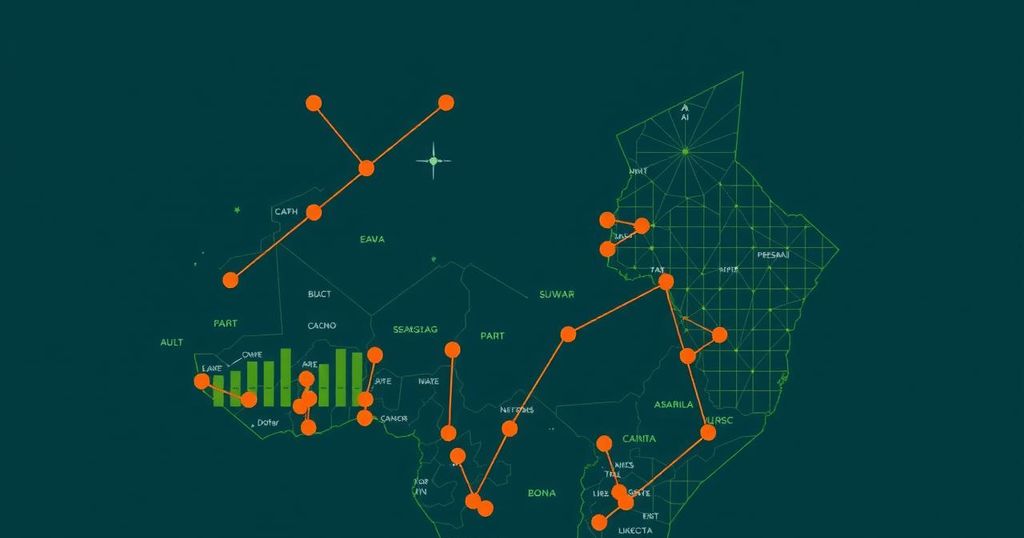Investing in Technical and Vocational Education for a Prosperous South Sudan

South Sudan must prioritize investment in Technical and Vocational Education and Training (TVET) to harness its youthful population for economic growth. TVET addresses critical skills gaps, promotes employment, and fosters social equity, while aligning with national development goals. Learning from Finland’s education model, South Sudan can develop a relevant and quality TVET framework to empower its youth and drive progress.
As South Sudan strives for stability and development, it is essential to prioritize investments in Technical and Vocational Education and Training (TVET). This sector plays a vital role in enhancing human capital and addressing the significant challenges posed by the nation’s youthful population, over 70% of whom are under the age of 30. By focusing on practical skills development, TVET can bridge the existing skills gap across key sectors such as agriculture, construction, and technology, thereby boosting productivity and fostering economic growth.
Furthermore, TVET can promote employment and entrepreneurship among the youth. By providing the necessary training, graduates are equipped to either gain meaningful employment or establish their own enterprises, which is particularly valuable in a context of high unemployment. Moreover, this investment can enhance social equity, extending opportunities to marginalized groups, including women and rural youth, thus fostering inclusive growth and social cohesion.
In alignment with national development goals aimed at poverty reduction and sustainable progress, prioritizing a skilled workforce through TVET becomes imperative. South Sudan can learn meaningful lessons from the Finnish education system, renowned for its effective vocational training. Finland’s success stems from integrating TVET with general education, emphasizing quality and relevance of programs in collaboration with industries, and investing in continuous teacher training to ensure high-quality education.
Additionally, Finland’s emphasis on lifelong learning promotes ongoing skill development throughout one’s career. South Sudan would benefit from adopting policies that support such continuous education, allowing its workforce to adapt to evolving job market demands. Collaboration between the government, educational institutions, and private sectors is crucial in developing relevant training programs that prepare graduates for successful employment.
As articulated by General Education and Instruction Minister Awut Deng Acuil, “2024 has been designated as the year of TVET,” emphasizing the government’s commitment to this initiative. Vice-President Hussen Abdelbagi Akol reminds us of the need to ensure quality teaching standards are met, stating, “we should not forget the situation of teachers.” By investing in the skills and potential of its citizens, South Sudan can secure a brighter future, empowering each individual to contribute to national progress.
The overarching context for this article revolves around the urgent need for South Sudan to enhance its educational frameworks, particularly through Technical and Vocational Education and Training (TVET). Given the country’s substantial youthful demographic, there is a pressing necessity to equip individuals with relevant skills that align with the demands of the labor market. This article explores how investments in TVET can address skills gaps, promote employment, enhance equity, and align with national development goals, while also drawing on successful approaches from the Finnish education system. Such strategies are pivotal for South Sudan’s aspiration to achieve economic growth and social cohesion.
In conclusion, investing in Technical and Vocational Education and Training is decidedly essential for South Sudan’s human capital development. By learning from the successful Finnish education model, South Sudan can cultivate a robust TVET framework that addresses its unique challenges and maximizes opportunities for its youth. Prioritizing quality education, stakeholder collaboration, and lifelong learning will significantly empower the youth, promote economic diversification, and contribute to building a prosperous and equitable South Sudan. The commitments made by government officials signal the prioritization of TVET in transforming the educational landscape and fostering overall national development.
Original Source: www.radiotamazuj.org






